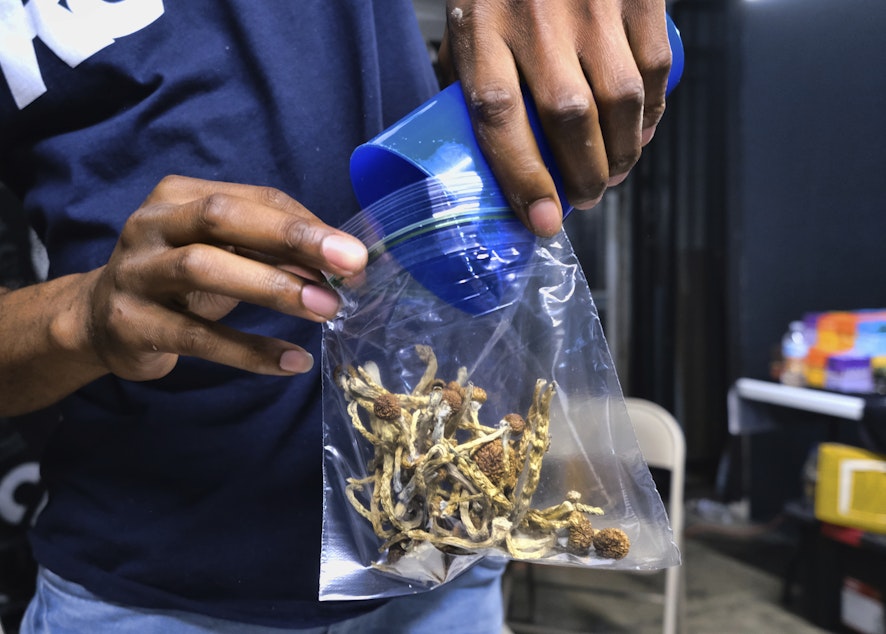Magic mushroom advocates want psilocybin on Washington's ballot in November

Washington state lawmakers let a magic mushroom legalization bill die. Now advocates want it on Washington's ballot.
Should people be allowed to legally consume psilocybin, the psychedelic compound in magic mushrooms? Advocates want to put it to a vote of the people.
The group Adapt Washington has filed a proposed ballot initiative that would legalize psilocybin for people over 21.
If passed, it would create a legal framework for people to have a supervised psilocybin sessions with a trained facilitator or medical provider. Two types of doses would be allowed: a threshold dose where a biological effect is detectable (colloquially, a medium dose up to a "heroic-dose"), or a subthreshold dose (aka low or micro dose).
The sponsor, Leo Russell, is a family therapist and chemical dependency provider in Seattle. She says the movement behind this represents a diverse community, reaching veterans, conservatives and liberals alike.
"We really have people from all walks of life," she says. "We have psychiatrists, we have doctors on our board, but we also have people that have been in and out of chemical dependency and [the] failed mental health treatment system here in King County that really have lived experience with these failed systems."
Sponsored
She says pharmaceutical treatment has not worked for a lot of people, including veterans and others she has worked with who are recovering from addiction.
Russell sees therapeutic potential in psychedelic mushrooms, something that's been explored on and off for decades in the United States. Proponents say legalization will open the door for people with depression and PTSD to use a plant-based treatment, and that it can also help with addiction recovery.
Spokane based attorney Pat Donahue drafted the proposal, Initiative 1886. He says the emphasis on legalization — not decriminalization — is important.
Legalizing psilocybin would set up a framework similar to marijuana, in which people could be licensed to grow or provide it. Decriminalization would do only that: stop criminal charges for people in possession, without setting up a safe way for people to obtain it.
Donahue says this is "first and foremost a safe and natural molecule." He's referencing research on it's impacts on humans, and new studies on its medical potentials.
Sponsored
"Lab after lab has been looking for 50 years now to find some sort of harm that can come from this and they've come up empty. And more importantly, since 2016, study after study has shown how powerful a tool this is for helping our suffering brothers and sisters," he says.
However, the federal government considers it a schedule 1 drug, which is illegal to possess and has no currently-accepted medical use.
A similar legislative bill, SB 5660, failed in this year's Washington legislative session, despite passionate testimony from therapeutic users and medical practitioners. There were no clear opponents, and it only had one hearing.
Oregon was the first state to legalize some use of psilocybin. Opponents who fought that effort said that more research is needed on its effects on people.




